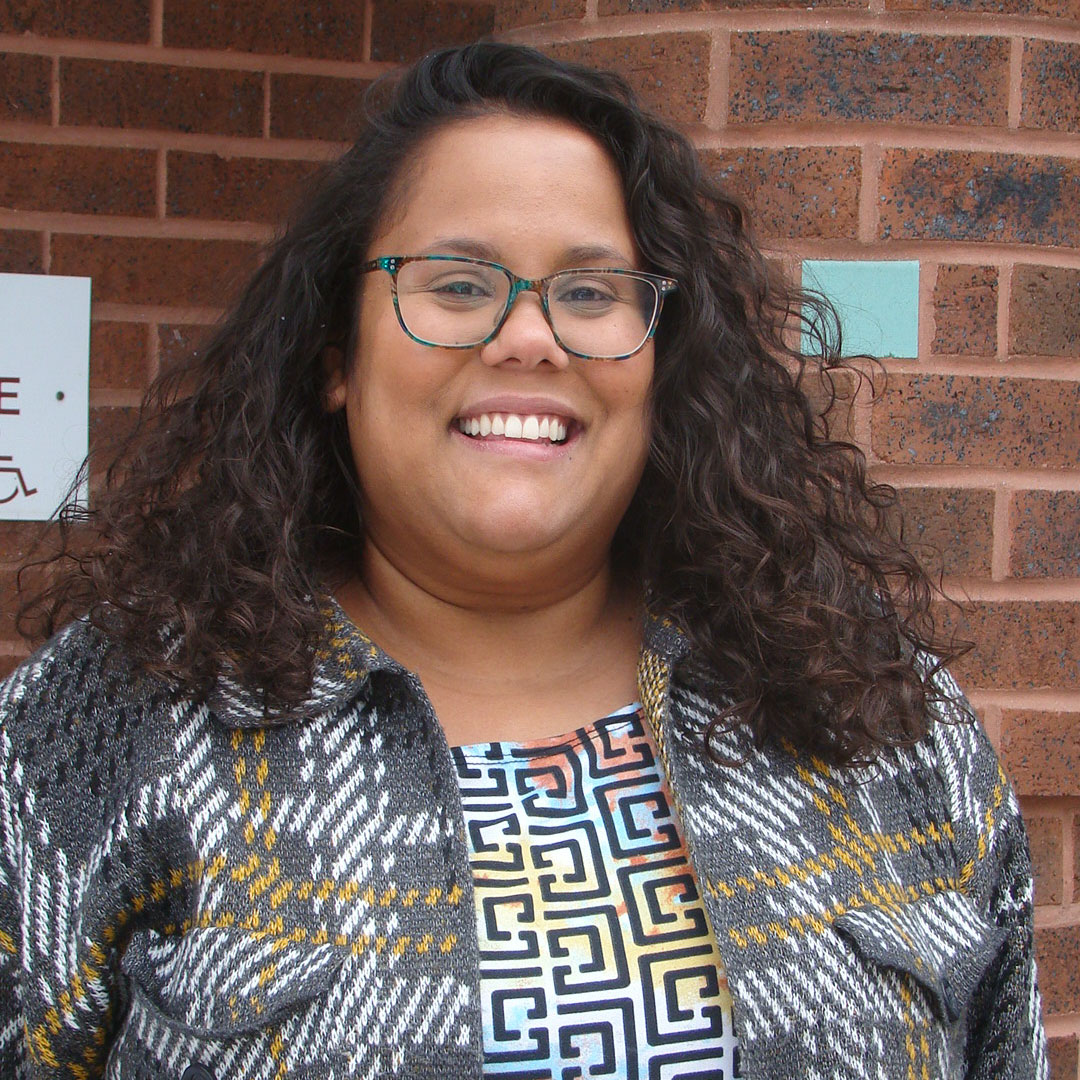“I volunteered one day and put my arm in and I got a severe allergic reaction that lasted like three days on my whole arm. Never again. Lesson learned.”
That’s new Goshen College biology professor Raquel Montañez-González explaining a challenge of mosquito research she became well-acquainted with while obtaining her doctorate: their need for blood — on that day, her blood — in order to reproduce.Montañez-González was hired last year to fill an open spot in the biology department after Jody Saylor moved to an administrative role on campus. She earned her doctorate in genetics at the University of Notre Dame in 2021 and is now teaching cell biology, genetics and microbiology courses which are required for biology, environmental science and nursing majors.
For Montañez-González, genetics is not only a research interest; it’s also deeply connected to her personal identity.
“I think it came from me being adopted,” she explained. “I always was interested in characteristics being inherited … I always questioned seeing my cousins’ resemblances.”
This fascination first led Montañez-González to obtain a bachelor’s degree in biology at the University of Puerto Rico-Cayey. There, she furthered her passion for genetics research by completing an REU summer internship at the University of Notre Dame.
Once again, her personal background influenced her career path, leading her to continue her work at Notre Dame for her doctorate.
“I realized that there was a lot of vector biology happening there,” she said, “and I zoned in on that because Puerto Rico has a lot of mosquitoes.”
According to the National Institutes of Health, “arthropod vectors can transmit infectious disease pathogens among humans or between animals and humans.”
Understanding this process, how mosquitoes spread disease, is key to controlling vector-borne diseases like malaria, dengue fever and Zika, which are particularly prevalent in Montañez-González’s home of Puerto Rico.
Coming to the mainland U.S. for her doctorate was a shock and challenge for Montañez-González in several respects. The language, culture, and weather of northern Indiana were all drastic shifts for her — not to mention the challenges of starting a rigorous graduate program.
“I took English from first grade through senior year, but it’s never enough … scientific English was a different thing, and it hardly matters how prepared you are,” she explained. “It took me longer to read everything; it was harder to participate in class because I had to translate stuff. And not knowing academia, everything was unknown to me.”
“I only moved with three suitcases,” she added, “so everything I owned was in a little room, and I was sleeping on a mattress on the floor. It was culture shock because it’s north, it’s winter, it’s darkness. I didn’t know the sun wouldn’t come out.”
Montañez-González’s doctoral research focused on the mosquito “Anopheles gambiae,” known for transmitting malaria primarily in Africa. This species has been known to undergo genetic changes, called chromosomal inversions, which can provide environmental advantages.
“I aimed to create accessible molecular techniques to identify those chromosomal inversions,” she said. “I created assays with PCR and digestions.”
This process of efficiently identifying which mosquitoes have the inversions is crucial to determining strategies for controlling them, and in turn limiting the spread of malaria.
Once mosquitoes procreate, the females need blood for the life cycle to continue. Whenever possible, Montañez-González explained, the lab used sheep blood, but sometimes the mosquitoes would get used to sheep blood and it wouldn’t work. When that happened, “somebody would volunteer to put their arm in and let them feed.”
After earning her doctorate, Montañez-González worked briefly in teaching and administrative roles at Notre Dame before coming to GC.
She brings diversity as the only female and only person of color within the biology department and as a native Spanish speaker, but she also emphasized that she brings other distinctiveness as a professor. “Diversity helps in so many ways, not only because I’m brown and Puerto Rican. It’s also because I was a nontraditional student. Having a nontraditional professor helps those students that otherwise would not feel accepted.”
“It’s not bad to accommodate different paths,” she continued, “and I’m glad I can be a part of that here. I’ve already had students coming to me about their experience at home. They don’t have the same language, cultural references, or religion [as others here] so those things have resonated with them and me.”
Although she acknowledged the challenges of her first year here, Montañez-González said they have been quite satisfying.
“I love this career because I keep learning all the time,” she said.




